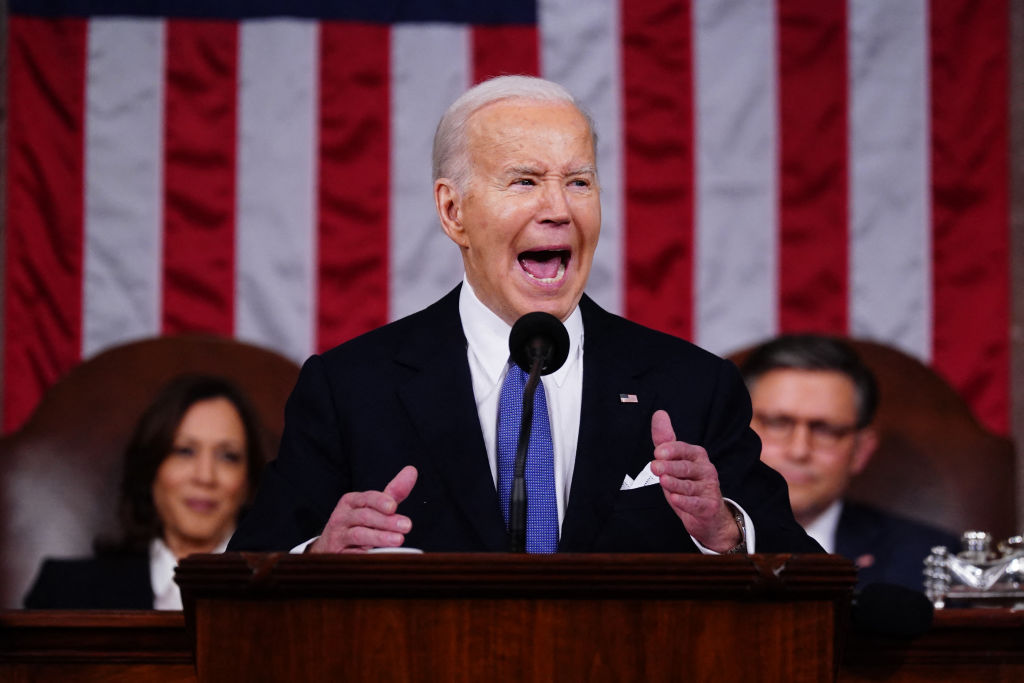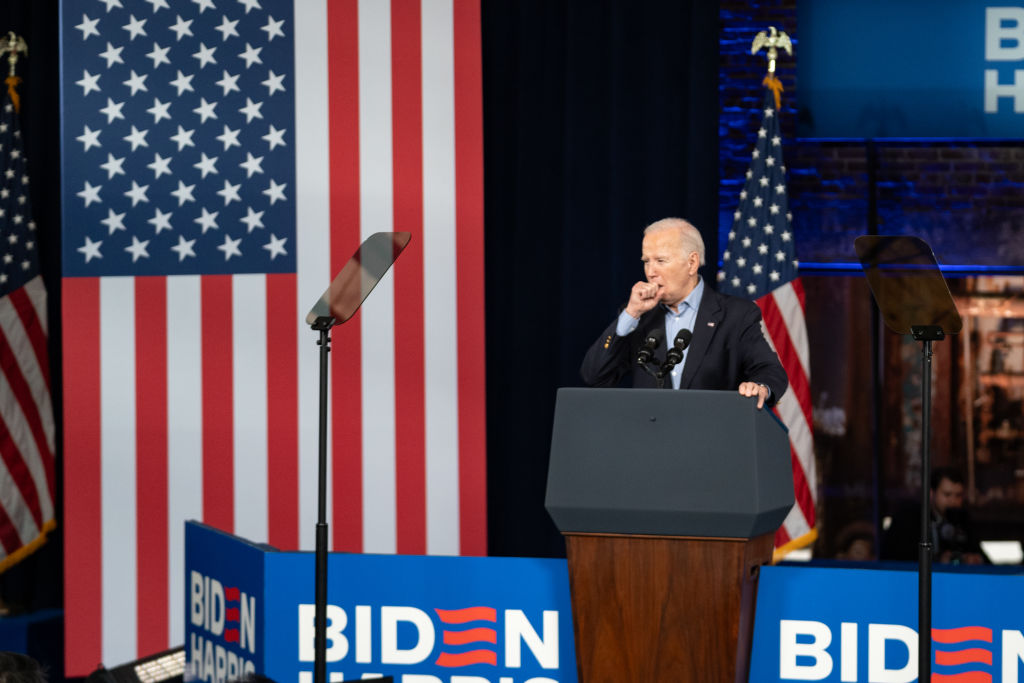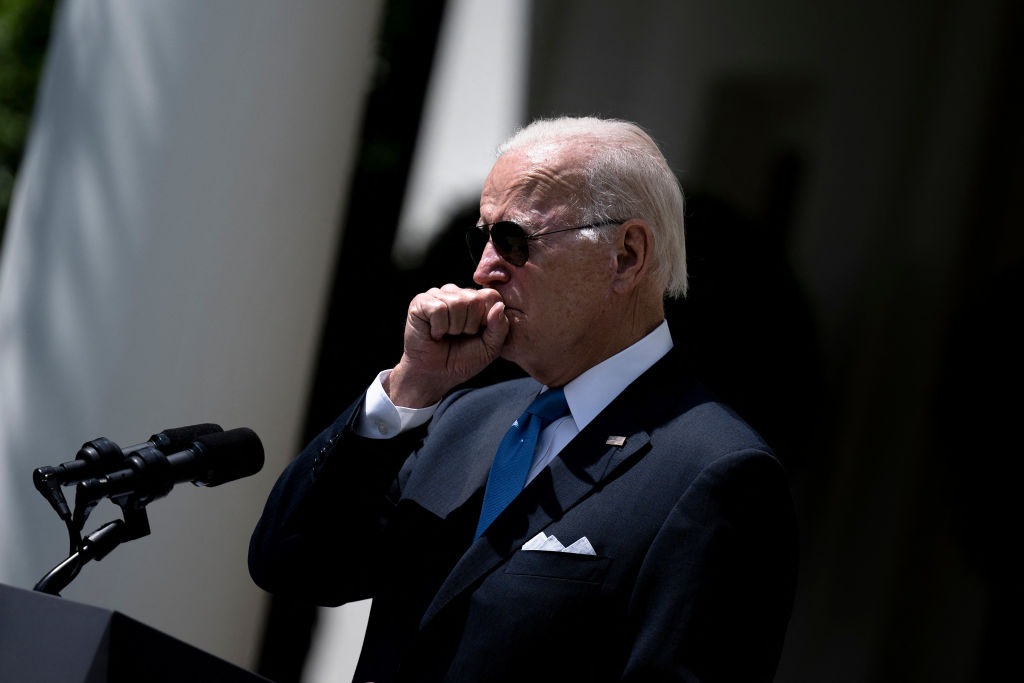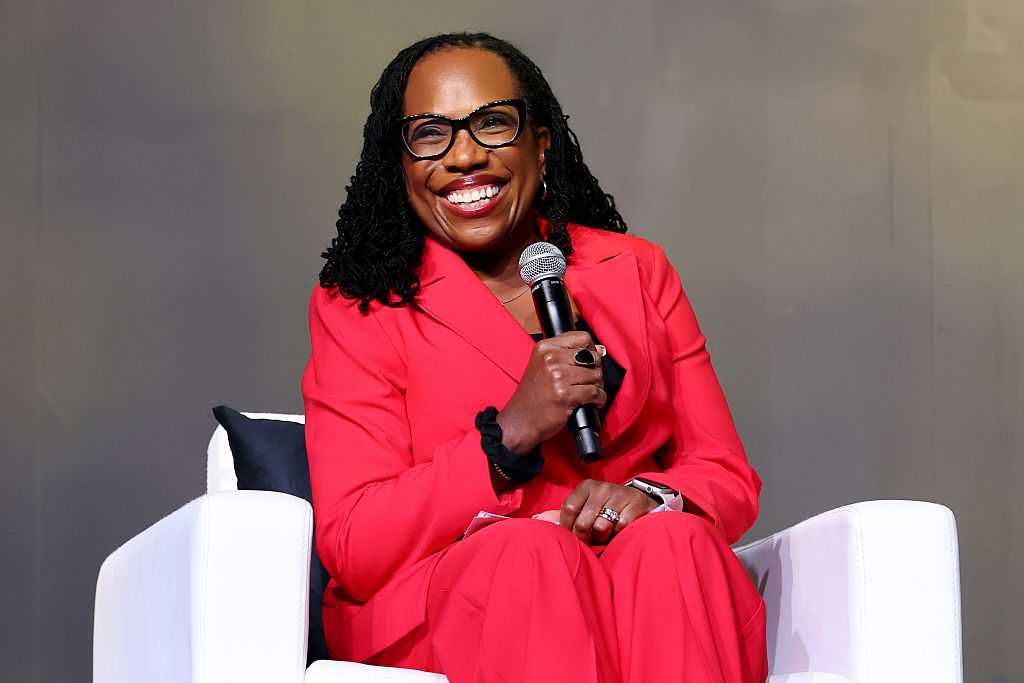President Joe Biden compared himself to Presidents Franklin Roosevelt and Abraham Lincoln, and his Republican opponents to Hitler, Nazis and the Confederacy during Thursday night’s State of the Union — and that was just in the first ninety seconds.
Before two minutes were spent, he’d lumped the Grand Old Party in with Russian president Vladimir Putin for good measure.
Having cracked a decent joke and demagogued his opponents, the president was off to the races. By the third minute, he’d reached his next most important goal: more money for war in Ukraine.
By minute four, he’d mentioned former president Donald Trump, though not by name. His “predecessor,” as he called him, loomed large in his remarks, coming up over a dozen times.
By the time he got to Sweden and Finland joining NATO, viewers might have wondered when he was planning to address the state of the union.
But then he got there. Finally, in minute six, a domestic issue, though it wasn’t the border, crime, inflation, or the economy that made the cut. Nope. In minute six we were treated to a dramatic retelling of January 6, 2021. The over-three-year-old riot was a “dagger at the throat of American democracy,” he menacingly intoned — “that darkest of days.”
Biden as FDR? Biden as savior of the Union? Republicans as Confederate Nazi Russians? The hysterical histrionics of partisan historian Jon Meacham, author of the president’s infamous Independence Hall speech, laced in and out of the president’s address. Through the sixty-seven-minute speech, the octogenarian struck an often angry tone, showcasing the whisper-and-yell that has characterized his speaking style since his 2016 return to the national stage.
There was anger in the streets, too, where young, left-wing protesters blocked Pennsylvania Avenue between the White House and the Capitol, chanting that Biden and the Democrats are war criminals for their support for Israel. Though far from the mass protests that plagued Democratic president Lyndon B. Johnson, who famously declined to run for re-election amid the chaos of the Vietnam War abroad and race riots and assassinations at home. “Remember Hiroshima, remember Vietnam,” the kids shouted. “Democratic Party, we know what side you’re on!” The president’s attempt to thread the needle with a forceful demand to bring more humanitarian aid to Gazans seems unlikely to bring this bunch back into the fold.
Republicans hoping to see the eighty-one-year-old man slurring his words and mixing up living and dead colleagues, however, were left disappointed by the energetic performance, though even CNN’s Jake Tapper noticed his pronunciation was garbled, and he’d mistaken Laken Riley’s name for University of Southern California football coach Lincoln Riley.
But before he went off-script to answer Representative Marjorie Taylor Greene’s challenge that he say Riley’s name, the president had a few more Democratic talking points to tick off. In vitro-fertilization, Roe v. Wade and pretending Vice President Kamala Harris is helpful.
While he made sure to stutter through menacing the Supreme Court, he didn’t actually say abortion once, concealing the reality behind better poll-tested phrases, like “what she needed,” “freedom to choose,” “the treatment they need” and “reproductive freedom.”
Crime wasn’t mentioned until past 9:30, and even then it was blamed on Covid. The economy and inflation didn’t come up until after, and in both cases the president thundered that everything is actually great (or getting there shortly). “The triumphalism about where the economy is today,” former Obama adviser David Axelrod noticed, “is probably not matching their mood.”
It wasn’t until after 10 p.m., when viewership numbers would have declined, that the president made it to immigration — a top issue in exit polls, and a wedge that has been generating public criticism of the White House from prominent Democrats, most prominent among them, New York City mayor Eric Adams. Thursday night, he sparred instead with Republicans, earning the ire of some Democrats for the most dramatic moment of the night, which culminated in his naming Augusta University student Laken Riley, who was murdered in February.
“Lincoln [sic] Riley, an innocent young woman who was killed by an illegal,” he yelled back at Greene, holding up a pin she’d given him on his way to the podium. “To her parents I say, my heart goes out to you.”
The move was a dramatic turnaround for the president, and betrays the White House knows how unpopular Democratic policies have been with American voters. That reality is slow to catch on with his colleagues, however. “He should’ve said undocumented,” former speaker of the House Nancy Pelosi opined. And as Biden sparred with Republican hecklers, working to blame the GOP for his border crisis, roughly half of his own party decline to applaud the amnesty bill he promised to sign.
Donald Trump as the soft-on-immigration candidate will be a hard message to sell. Fifty percent of registered voters told a CBS poll last week they believed Biden’s policies would increase illegal crossings, versus a mere 9 percent who believe the same for Trump. Just 22 percent believed Biden’s policies would deter illegal immigration.
But if not falling asleep is the measure of success, the president carried the night.
“The bubble is extraordinary,” Senator Bernie Sanders reportedly griped last fall. “Democrats seem to think — many of them — that, only if we can explain all that we have accomplished, people will come on board. But that ignores the pain ordinary people are now experiencing.” On that front, the White House has a long way to go down a road it refuses to take.


























Leave a Reply